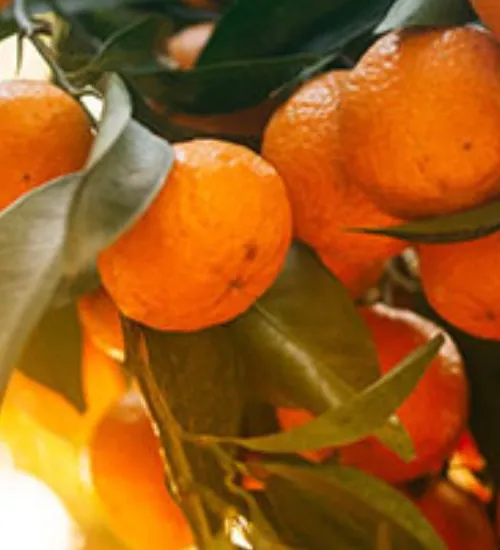
CSR lexicon
ACT4NATURE: Act4nature International is an initiative to encourage French international companies to voluntarily commit to protecting biodiversity.
Alternative Cocktails: Alcoholic cocktails with a maximum alcohol content of 8% whose proportion of 40% spirits does not exceed 25ml per glass (or equivalent).
Anaerobic digestion (methanization): Sequence of processes by which microorganisms break down biodegradable material in the absence of oxygen.
Bigarade Tree:Another name for the bitter orange tree, also known as the Seville orange tree (Citrus aurantium).
Carbon Footprint: A way of measuring the greenhouse gas emissions generated by a business, individual, group or organisation, through their consumption of energy and raw materials. The emission factors related to energy sources mainly correspond to CO2 emissions. They are generally expressed as grams of CO2 equivalent per kilowatt hour.
CIFRE: Conventions Industrielles de Formation par la Recherche (CIFRE) (Industrial Agreements for Training through Research) foster exchanges between public research laboratories and the wider socio-economic world, promote the employment of PhDs in companies and support business innovation in France. The scheme is funded by the Ministry of Higher Education, Research and Innovation.
CIRAD: Centre de Coopération Internationale en Recherche Agronomique pour le Développement (Centre for International Cooperation in Agricultural Research for Development).
Circularity: An approach aiming to reuse, reduce and recycle resources to minimise waste, extend product life and protect the environment.
CSR (Corporate Social Responsibility): The contribution made by companies to sustainable development challenges. It is defined by the European Commission as the voluntary integration by companies of social and environmental concerns into their business activities and relationships with stakeholders. The CSR scope is focused on seven main issues: organisational governance, human rights, labour practices, environment, fair operating practices, consumer issues, and community involvement and development.
Ecodesign: The integration of environmental criteria into the product design phase.
Global Compact: A non-binding United Nations pact to encourage businesses and firms worldwide to adopt sustainable and socially responsible policies, and to report on their implementation. The UN Global Compact is a principle-based framework for businesses, stating ten principles in the areas of human rights, labor, the environment and anti-corruption.
GLOBAL G.A.P.: The GLOBAL Good Agricultural Practice standards and related supplements cover safe and responsible agricultural practices. They encompass environmental concerns such as water, plant protection products, fertilisers, biodiversity, soil and waste management, as well as criteria relating to animal health and welfare, food safety and the health, safety and welfare of workers.
Green electricity: Electricity from renewable sources (hydraulic, wind, solar).
GHG: Greenhouse gases
Huanglongbing (HLB): Yellow Dragon disease, or Huanglongbing (HLB) in Chinese, is a bacterial disease affecting citrus trees in Asia, Africa and South America. Although harmless to humans, it attacks all citrus species, weakening trees and eventually causing them to die.
INRAE: Institut National de Recherche pour l’Agriculture (National Research Institute for Agriculture, Food and the Environment). In association with CIRAD, INRAE’S facility in Corsica is one of the world’s leading centres of expertise on citrus fruit. Over 800 varieties of citrus fruit are cultivated on site and studied by researchers from the two organisations working in collaboration.
Net zero carbon: The carbon footprint is a measure of the greenhouse gas emissions emitted by an activity, person, group or organization, through its consumption of energy and raw materials. The emission factors associated with energy sources essentially correspond to CO2 emissions. They are generally expressed in grams of CO2 equivalent per kilowatt-hour.
Mixology: Mixology is the art (and science!) of creating cocktails by the skilful combination of various ingredients, such as spirits, liqueurs, juices, syrups and garnishes, to produce perfectly rounded, delicious drinks. This discipline requires an in-depth knowledge of flavours, preparation and presentation techniques, as well as the creative flair needed to innovate and personalise each cocktail.
SEDEX: A collaborative platform for sharing responsible sourcing supply chain data used by over 50,000 members in more than 150 countries. Tens of thousands of companies use Sedex to manage their labour, health and safety, environmental and ethical business performance.
SDGs (Sustainable Development Goals): These are the 17 Sustainable Development Goals related to the 2030 Agenda action plan introduced by the United Nations Development Programme for People, Planet and Prosperity. These sustainable development goals set out the steps to be taken to ensure a better and more sustainable future for all. They address global challenges, notably those related to poverty, inequality, climate action, environmental degradation, prosperity, peace, and justice.
Tracability: Ability to identify the origin and trace the route (of a product or raw material) from production to distribution.
Terpenes: Terpenes are a waste product generated during the resting phase of our distillate and before the final Cointreau blending. This delicate waste is sorted by Cointreau and sold to perfume and cosmetics manufacturers. Once processed, terpenes are found in a wide range of everyday cosmetic products such as soaps.
Value Chain: Every step of our business activity, from the orchard to final tasting. Referring to the value chain also allows us to define the impact of our activity. This impact can be direct (such as controlling our energy consumption at our sites) or indirect (such as the transport of raw materials or the end-of-life of a bottle). It also includes the charter that we require our suppliers to sign to guarantee their alignment with our environmental and social values.
2025 Sustainable Exception: The key elements of the “2025 Sustainable Exception” plan are sustainable farming, reducing carbon emissions, and eco-design. The targets are clear – by 2025, guaranteeing sustainable agriculture for all terroirs that enable the production of our spirits, targeting 100% eco-design for our packaging, and gradually reducing our carbon emissions by 25%, aligning ourselves with the global target of “Net Zero” by 2050.




